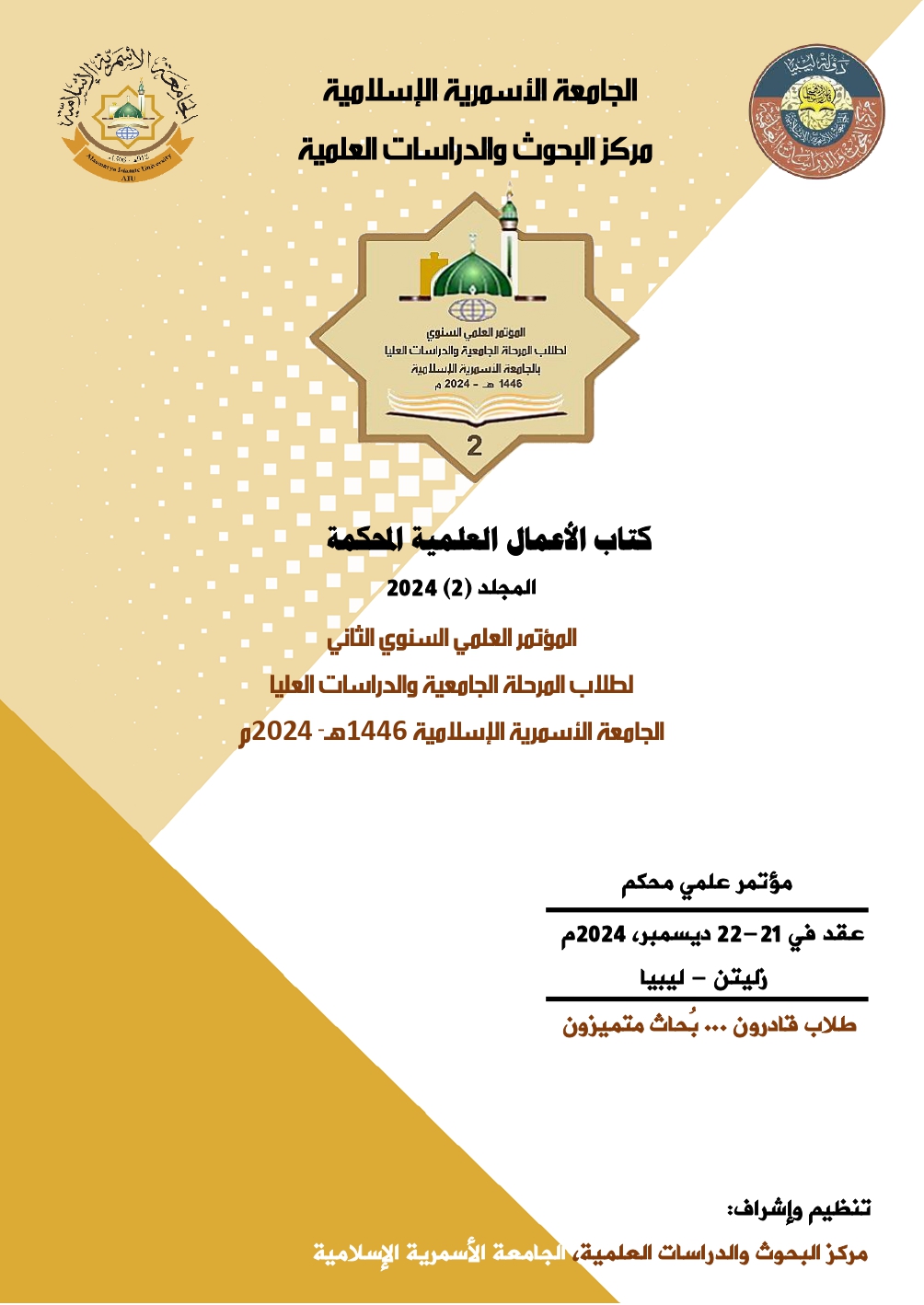Evaluation of The Antibacterial Activity of Some Extracts of Date Palm (Phoenix Dactylifera) and Date Pits of The Bakrari Variety
Keywords:
Bakrari date, Alcoholic extract, Pathogenic bacteria, Antibiotic, Antibacterial activityAbstract
Date fruits have been used for nutritional and therapeutic purposes in various parts of the world, especially in the Middle East. It is rich in many essential nutrients and a wide range of antioxidant compounds. Antibiotics play a fundamental role in treating infections. However, some pathogenic bacteria have begun to develop resistance to them, causing chronic infections. This study aimed to evaluate the antibacterial activity of five extracts of Bakrari dates and one extract specific to date pits, namely ethyl acetate extract: ethanol (1:1), chloroform: ethanol (1:1), ethanol and acetone: water (1:1), ethanol: water (1:1), and propanol extract specific to date pits to determine their antibacterial activity against four types of pathogenic bacteria, namely Escherichia coli, Klebsiella pneumoniae, Staphylococcus aureus, and Acinetobacter. spp. The results obtained showed that the ethyl acetate extract had a significant antibacterial activity compared to other extracts, as it showed the highest inhibition zone against S. aureus bacteria with an average inhibition zone (40 mm), and other extracts showed a diverse effect against other types of used bacteria, such that the effectiveness of the extract increases with increasing concentration. It is concluded that the Bakrari date fruits and date pits contain biologically active substances that have the ability to inhibit bacteria.
Downloads
References
أولاً: المراجع باللغة العربية
ابن طبة، فطيمة الزهراء؛ و غيابة، زينب (2021). تأثير أطوار النضج على المركبات الفينولية والفعالية المضادة للأكسدة والجذور الحرة لبعض أصناف النخيل المثمرة
"Phoenix dactylifera L" . رسالة دكتوراه، جامعة قاصدي مرباح-ورقلة، ورقلة، الجزائر.
فايد، خ. ا.؛ علي، ح. م.؛ غويلة، خ. ا.؛ كندي، ب. م. (2023). تقييم الفعالية التثبيطية لمستخلص البصل والثوم المائي ضد نمو بعض أنواع البكتيريا الممرضة. المؤتمر العلمي السنوي لطلاب المرحلة الجامعية والدراسات العليا بالجامعة، 1، 5. 13-23.
ثانياً: المراجع باللغة الإنجليزية
Aljazy, N. A., Al-Mossawi, A. E. B. H., & Al-Rikabi, A. K. (2019). Study of antibacterial activity of some date seed extracts. Basrah Journal of Agricultural Sciences, 32, 247-257.
Alkhalidy, H., Al-Nabulsi, A. A., Al-Taher, M., Osaili, T., Olaimat, A. N., & Liu, D. (2023). Date (Phoenix dactylifera L.) seed oil is an agro-industrial waste with biopreservative effects and antimicrobial activity. Scientific Reports, 13(1), 17142.
Al-Shwyeh, H. A. (2019). Date palm (Phoenix dactylifera L.) fruit as potential antioxidant and antimicrobial agents. Journal of pharmacy & bioallied sciences, 11(1), 1.
Alshwyeh, H. A. (2020). Phenolic profiling and antibacterial potential of Saudi Arabian native date palm (Phoenix dactylifera) cultivars. International Journal of Food Properties, 23(1), 627-638.
Anjali, D. B., Mohabe, S., Reddy, A. M., & Nayaka, S. (2015). Antimicrobial activities of 2-Propanol crude extract from lichen Parmotrema tinctorum (Despr. ex. Nyl.) Hale, collected from Eastern Ghats, India. Current Research in Environmental and Applied Mycology, 5(3), 160-168.
Clinical Laboratory Standard Institute. (2020). Avaialble online at: [file:///C:/Users/kholo/Downloads/CLSI-2020.pdf].
Ghnimi, S., Umer, S., Karim, A., & Kamal-Eldin, A. (2017). Date fruit (Phoenix dactylifera L.): an underutilized food seeking industrial valorization. NFS J, 6, 1–10
Hussain, M. I., Semreen, M. H., Shanableh, A., Khattak, M. N. K., Saadoun, I., Ahmady, I. M., ... & Soliman, S. S. (2019). Phenolic composition and antimicrobial activity of different Emirati Date (Phoenix dactylifera L.) pits: A comparative study. Plants, 8(11), 497.
Samad, M. A., Hashim, S. H., Simarani, K., & Yaacob, J. S. (2016). Antibacterial properties and effects of fruit chilling and extract storage on antioxidant activity, total phenolic and anthocyanin content of four date palm (Phoenix dactylifera) cultivars. Molecules, 21(4), 419
Swaidan, A., Azakir, B., Neugart, S., Kattour, N., Sokhn, E. S., Osaili, T. M., & Darra, N. E. (2023). Evaluation of the Phenolic Composition and Biological Activities of Six Aqueous Date (Phoenix dactylifera L.) Seed Extracts Originating from Different Countries: A Comparative Analysis. Foods, 13(1), 126.
WHO “World Health Organization” (2023). Antimicrobial resistance. Available Online: [http://www.who.int/news-room/fact-sheets/detail/antimicrobial-resistance].
Downloads
Published
Conference Proceedings Volume
Section
License

This work is licensed under a Creative Commons Attribution-NonCommercial-NoDerivatives 4.0 International License.





